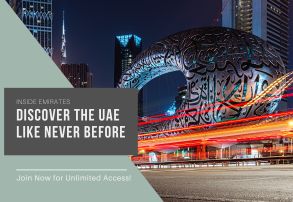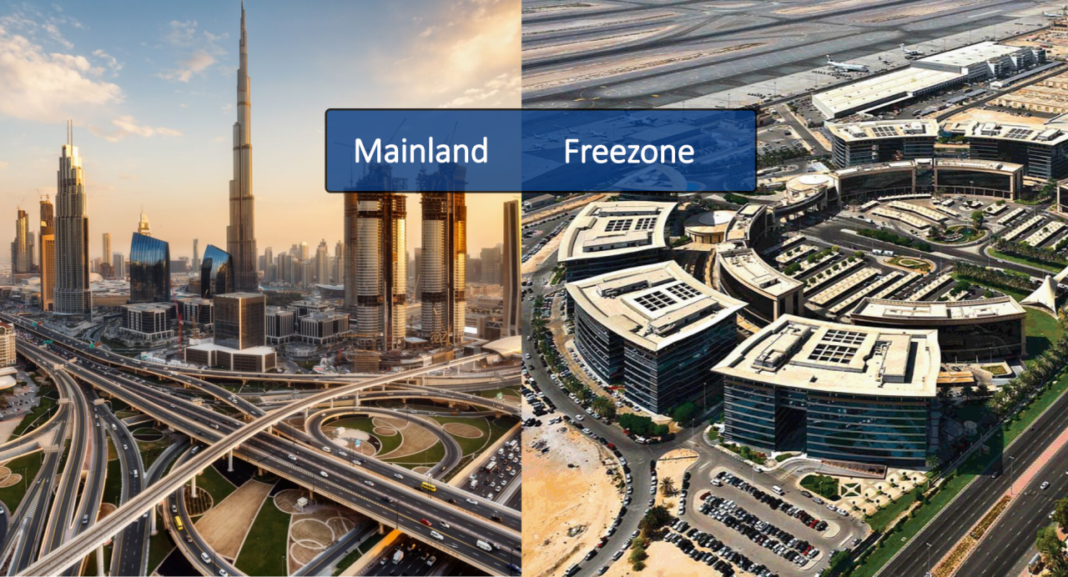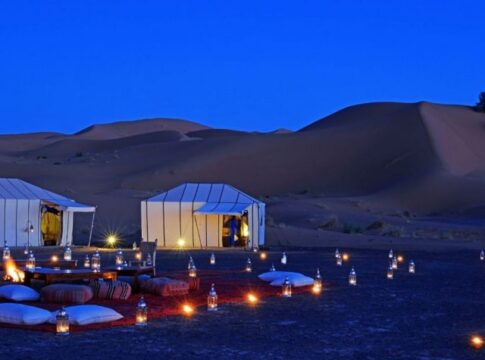A freezone in the UAE is a designated geographical area governed by its own set of regulations, distinct from the broader national laws. These zones are established to attract foreign investment, promote international trade, and foster economic diversification by offering a range of incentives and business-friendly environments.
Definition and History
A freezone, also known as a free trade zone, is an area where businesses can operate with special regulatory and economic privileges, such as 100% foreign ownership, tax exemptions, and streamlined setup processes.
The concept was first introduced in the UAE with the establishment of Jebel Ali Free Zone (JAFZA) in 1985, which became a model for subsequent freezones across the Emirates. The success of JAFZA led to the creation of over 40 multidisciplinary freezones in the UAE, each tailored to specific industries and economic goals.
Purpose of the Freezone
The primary purpose of freezones in the UAE is to diversify the economy away from oil dependence, attract foreign investment, promote international trade, and foster innovation. These zones serve as incubators for local and international enterprises, providing a tax-efficient and supportive business environment.
How Does a Freezone Work?
Freezones operate under the authority of an independent Free Zone Authority (FZA), which issues licenses and assists companies with business setup. Companies can register as a Free Zone Establishment (FZE) or establish a branch/representative office.
Each freezone has specific requirements regarding capital, office space, and permitted activities, tailored to its industry focus. Freezone companies can operate within the zone or export goods outside the UAE, with some zones offering dual licenses for mainland operations.
Benefits of a Freezone
- 100% foreign ownership of companies
- 100% repatriation of capital and profits
- Fast and easy business setup procedures
- Developed business communities and support services
- Numerous options at competitive costs
- 100% exemption from corporate and income taxes
- 100% exemption from customs duty
- Independent laws and regulations
- Easy access to regional and global markets
- Modern and sophisticated infrastructure
What is a Freezone Visa?
A freezone visa is a residency permit that allows individuals to live and work within a specific freezone area. Unlike mainland visas, freezone visas are issued by the governing authority of the respective freezone and are typically linked to business ownership or employment within that zone.
Eligibility usually requires a valid business license, a minimum investment, and compliance with age and medical requirements.
Difference Between Mainland and Freezone UAE
| Aspect | Mainland UAE | Freezone UAE |
|---|---|---|
| Ownership | Requires 51% local ownership | 100% foreign ownership |
| Business Scope | Can operate anywhere in UAE | Restricted to freezone or export |
| Taxation | May have corporate tax | 0% corporate and income tax |
| Office Space | Must have physical office | Can have virtual or physical office |
| Visa Eligibility | No restrictions on number of visas | Limited number of visas (usually 6-7) |
| Audits | Mandatory financial audit | May not require audit |
| Approvals | Multiple approvals required | Streamlined approvals |
| Currency Usage | No restrictions | No restrictions |
| Repatriation of Profits | Full repatriation allowed | Full repatriation allowed |
Can a Freezone Company Do Business in Mainland?
A freezone company is generally restricted to operating within its designated zone or exporting goods outside the UAE. To conduct business in the mainland, a freezone company must register a branch or obtain a dual business license, which allows operations in both the freezone and mainland.
Dual Licenses Allowing Freezone Companies to Trade on the Mainland
A dual license in the UAE enables freezone companies to legally operate and trade within the mainland without the need to establish a separate legal entity. Introduced through recent regulatory reforms, this option allows businesses to maintain the benefits of their freezone setup, such as 100% foreign ownership and tax exemptions, while gaining broader market access across the UAE.
The process typically involves approval from both the freezone authority and the mainland’s Department of Economic Development. This model enhances operational flexibility, credibility, and access to governmental contracts and local customers, reducing duplication of costs and administrative efforts.
How Many Freezones Are There in the UAE?
The UAE currently has over 47 freezones, spread across all seven emirates. These zones cater to a wide range of industries, including technology, finance, healthcare, media, and logistics.
List of Freezones in UAE (Clusterized by Emirate)
The UAE is home to over 40 designated freezones spread across its seven emirates, each providing unique business environments tailored to specific industries and sectors. Here is the list of freezones in the UAE clustered by emirate:
Dubai
- Jebel Ali Free Zone (JAFZA)
- Dubai Airport Free Zone (DAFZA)
- Dubai Multi Commodities Centre (DMCC)
- Dubai Internet City
- Dubai Media City
- Dubai Silicon Oasis
- Dubai Healthcare City
- Dubai Knowledge Village
- Dubai International Academic City
- Dubai Production City
- Dubai Logistics City
- Dubai Design District
- Dubai Science Park
- Dubai Textile Village
- Dubai International Financial Centre (DIFC)
- Dubai South/DWC (Al Maktoum International Airport Free Zone)
- Meydan Free Zone
- Dubai Outsource Zone
- International Media Production Zone
Abu Dhabi
- Abu Dhabi Global Market (ADGM)
- Masdar City Free Zone
- Abu Dhabi Airport Free Zone (ADAFZ)
- Khalifa Economic Zones Abu Dhabi (KEZAD)
Sharjah
- Sharjah Airport International Free Zone (SAIF-ZONE)
- Hamriyah Free Zone
- Sharjah Publishing City Free Zone
- Sharjah Media City (Shams)
- Sharjah Research Technology and Innovation Park (SRTIP)
- Sharjah Communication Technologies Free Zone (COMTECH)
Ajman
Ras Al Khaimah
- Ras Al Khaimah Economic Zone (RAKEZ)
- RAK Maritime City Free Zone Authority
- Ras Al Khaimah Free Trade Zone
- Ras Al Khaimah Media Free Zone
Fujairah
- Fujairah Free Zone
- Fujairah Creative City
Umm Al Quwain
- Umm Al Quwain Free Trade Zone (UAQFTZ)
Key Freezones and Their Industry Focus
The UAE’s freezones cater to diverse sectors, each offering specialized infrastructure and regulatory frameworks suited to particular industries. For example:
- Dubai Multi Commodities Centre (DMCC): Primarily focused on commodities trading, including precious metals, diamonds, and energy products.
- twofour54 (Abu Dhabi): A creative media freezone supporting content production, broadcasting, and digital media enterprises.
- Khalifa Economic Zones Abu Dhabi (KEZAD): Geared towards industrial manufacturing, logistics, and large-scale warehousing.
- Dubai Internet City and Dubai Silicon Oasis: Technology and innovation hubs supporting IT, software, and telecom companies.
- Dubai Healthcare City: Specialized for healthcare services, medical research, and wellness sectors.
- Sharjah Publishing City Free Zone: Focused on publishing, printing, and related cultural industries.
Conclusion
In conclusion, freezones play a pivotal role in the UAE’s economic landscape, offering an unparalleled combination of 100% foreign ownership, tax advantages, and sector-focused infrastructure that attracts global investors and entrepreneurs. By providing streamlined business setup procedures and specialized environments, freezones continue to drive economic diversification, innovation, and international trade.
Whether through traditional freezone licenses or newer dual licensing options enabling mainland operations, the UAE’s freezones remain a cornerstone for anyone seeking to tap into the region’s dynamic business opportunities.




